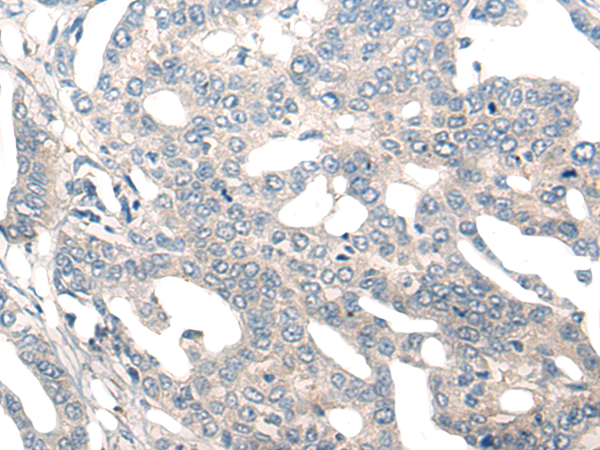中文名称: 兔抗NOG多克隆抗体
英文名称: Anti-NOG rabbit polyclonal antibody
别 名: noggin; SYM1; SYNS1; SYNS1A
相关类别: 一抗
储 存: 冷冻(-20℃)
宿 主: Rabbit
抗 原: NOG
反应种属: Human, Mouse
标 记 物: Unconjugate
克隆类型: rabbit polyclonal
技术规格
|
Background: |
The secreted polypeptide, encoded by this gene, binds and inactivates members of the transforming growth factor-beta (TGF-beta) superfamily signaling proteins, such as bone morphogenetic protein-4 (BMP4). By diffusing through extracellular matrices more efficiently than members of the TGF-beta superfamily, this protein may have a principal role in creating morphogenic gradients. The protein appears to have pleiotropic effect, both early in development as well as in later stages. It was originally isolated from Xenopus based on its ability to restore normal dorsal-ventral body axis in embryos that had been artificially ventralized by UV treatment. The results of the mouse knockout of the ortholog suggest that it is involved in numerous developmental processes, such as neural tube fusion and joint formation. Recently, several dominant human NOG mutations in unrelated families with proximal symphalangism (SYM1) and multiple synostoses syndrome (SYNS1) were identified; both SYM1 and SYNS1 have multiple joint fusion as their principal feature, and map to the same region (17q22) as this gene. All of these mutations altered evolutionarily conserved amino acid residues. The amino acid sequence of this human gene is highly homologous to that of Xenopus, rat and mouse. |
|
Applications: |
ELISA, IHC |
|
Name of antibody: |
NOG |
|
Immunogen: |
Synthetic peptide of human NOG |
|
Full name: |
noggin |
|
Synonyms: |
SYM1; SYNS1; SYNS1A |
|
SwissProt: |
Q13253 |
|
ELISA Recommended dilution: |
5000-10000 |
|
IHC positive control: |
Human gastric cancer and Human liver cancer |
|
IHC Recommend dilution: |
25-100 |


 购物车
购物车 帮助
帮助
 021-54845833/15800441009
021-54845833/15800441009
